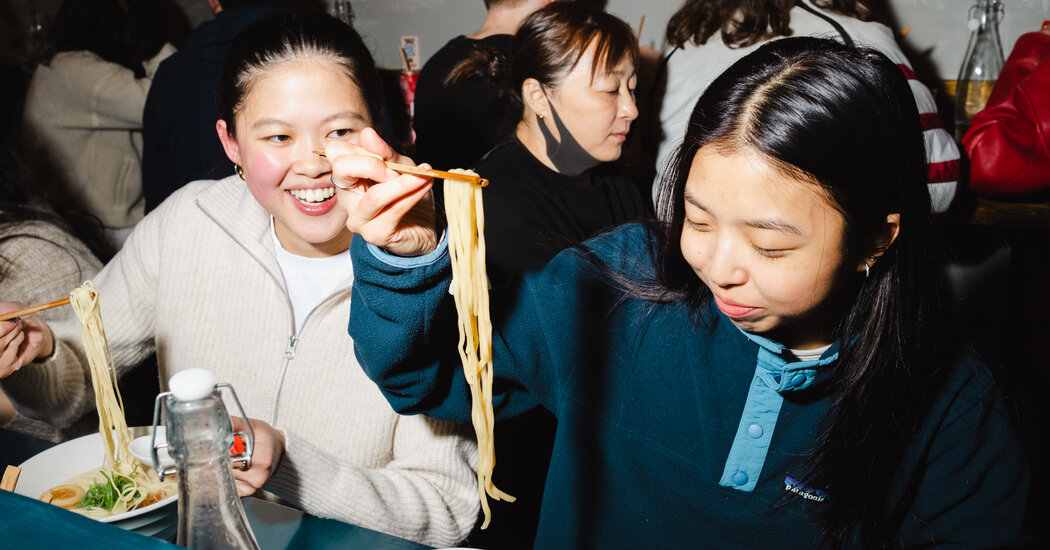
I have never had tsukemen noodles that cling to their sauce as well as Okiboru’s. This may be because the broth has been reduced to a sticky syrup, but the noodles’ shape — an overfed rectangle, like linguine — must have something to do with it. Okiboru makes all its noodles in the kitchen each day, and the rollers that cut them into strands seem to leave the surface slightly rougher than typical ramen noodles. However it’s done, the marriage of sauce and starch is so nearly perfect that you may forget you are eating in an undecorated room in a vintage tenement next door to a shop that sells backpacks and suitcases on the sidewalk.
Each bowl of tsukemen contains a simmered egg, its bright yolk soft as jelly. You can also get sliced chicken, supposedly cooked sous vide, although I find it dry and bland, and a charring blast with a cooking torch doesn’t do it any favors. Far better is the sweet and savory chashu, thin bands of pork belly cooked until they fall into fatty shards.
There is a lime wedge in the bowl, too. Squeezed over the noodles when you’re in the homestretch, it brings out their flavor, which can get obscured by the sauce, and spurs you on to finish.
Okiboru House of Ramen sprang from Okiboru, a group with three locations in the Atlanta area. Founded by three chefs, Naoki Kyobashi, Hyun Park and Justin Lim, the company started with a single shop in downtown Los Angeles that attracted attention for a brief time before closing in the pandemic. When another venture of Mr. Lim’s, Scoville Hot Chicken, failed to catch on in New York, they remade it as Okiboru, bringing on Mr. Lim’s son, Matthew, as the chef and an owner.
As it happens, shortly after Okiboru opened, a leading tsukemen specialist from Japan set up an outpost in the area. Tsujita Artisan Noodle, a 20-year-old concern whose dipping noodles are highly regarded by ramen heads in Tokyo, now has a branch in Fort Lee, N.J., its first on the East Coast. When Tsujita touched down in Los Angeles in 2011, the critic Jonathan Gold suggested in LA Weekly that its tsukemen might be life-changing.



